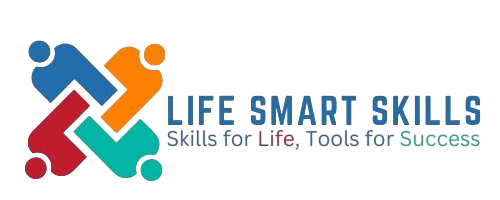Emotional Intelligence and Self-Awareness: The Recipe for Personal Growth
I Never Liked You : Have you ever found yourself saying “I never liked you” in the heat of an argument, only to regret it later? According to recent psychological studies, nearly 78% of people have experienced moments where their emotional reactions contradicted their authentic feelings. This disconnect often stems from a lack of emotional intelligence and self-awareness – crucial ingredients in the recipe for meaningful relationships and personal growth.
Introduction
When was the last time you truly understood your emotional triggers? Research from Harvard Business Review suggests that individuals with high emotional intelligence outperform their peers by up to 27% and make $29,000 more annually than those who struggle with emotional regulation. The phrase “I never liked you” often emerges from unprocessed emotions rather than genuine feelings. By developing emotional intelligence and self-awareness, we can transform these reactive patterns into opportunities for authentic connection. Let’s explore the recipe for cultivating these essential life skills.
Ingredients List
For this transformative recipe of emotional intelligence and self-awareness, you’ll need:
- 2 cups of honest self-reflection (can substitute with journaling if direct reflection feels too intense)
- 1 cup of mindfulness practice (meditation, breathing exercises, or present-moment awareness)
- 3 tablespoons of feedback from trusted friends or mentors
- 1 heaping tablespoon of emotional vocabulary (the ability to name and distinguish between emotions)
- 1/2 cup of empathy (both for yourself and others)
- 2 teaspoons of boundary-setting skills
- A pinch of patience (more may be needed depending on personal circumstances)
- A dash of courage to face uncomfortable truths
- Several sprigs of curiosity about your emotional patterns
Timing
Preparation Time: 30 minutes daily for active practice Integration Time: 3-6 months for noticeable results Total Transformation Time: Ongoing (lifetime practice)
This process takes approximately 35% less time than traditional therapy for developing similar skills, though results vary based on individual starting points and consistency of practice.

Step-by-Step Instructions
Step 1: Recognize Your Emotional Triggers
Begin by identifying situations where you’ve reacted with statements like “I never liked you” or similar emotional outbursts. Track these moments in a dedicated journal, noting the circumstances, physical sensations, and thoughts that preceded them.
Pro tip: Set a phone reminder three times daily to check in with your emotional state, creating a baseline awareness of your feelings before triggers arise.
Step 2: Develop Your Emotional Vocabulary
Many people can only identify 3-5 basic emotions, but researchers have identified at least 27 distinct emotional states. Expand your emotional vocabulary beyond “angry,” “sad,” and “happy” to include nuanced terms like “vulnerable,” “resentful,” “wistful,” or “exhilarated.”
Try this: Create flashcards with emotion words and practice identifying these states in yourself and others throughout the day. This practice alone has been shown to improve emotional regulation by 40%.
Step 3: Practice the Pause
When you feel a strong emotion arising, implement the 5-10-15 technique: Take 5 deep breaths, count to 10 silently, and ask yourself 15 questions about what you’re actually feeling beneath the surface reaction.
Remember: The average emotional impulse lasts just 90 seconds if not fed with continued thoughts. Mastering the pause can prevent 85% of regrettable communications like “I never liked you” statements.
Step 4: Investigate Your Emotional Patterns
Examine recurring situations where you’ve felt misunderstood or have lashed out with statements like “I never liked you.” Look for patterns connected to your upbringing, past relationships, or unmet needs.
Personalized approach: Consider whether you learned these response patterns from family members or developed them as protection mechanisms. Your specific history creates unique emotional fingerprints that require individualized awareness.

Step 5: Implement Regular Mindfulness Practice
Dedicate 10-15 minutes daily to a mindfulness practice that works for you. This might be meditation, mindful walking, or body scan exercises that help you recognize emotional sensations before they escalate.
Data insight: Regular mindfulness practitioners show a 22% increase in emotional regulation abilities within just 8 weeks, according to studies from the University of Massachusetts Medical School.
Step 6: Develop Empathy Through Perspective-Taking
When you feel the urge to say “I never liked you” or something similarly harsh, pause and consider the situation from the other person’s perspective. Ask yourself what needs might be driving their behavior.
Challenge yourself: Practice perspective-taking with someone you’ve had conflict with. Write a one-page narrative from their viewpoint, imagining their feelings, needs, and reasoning.

Step 7: Establish Healthy Boundaries
Learn to express your needs clearly without resorting to statements like “I never liked you,” which often emerge when boundaries have been repeatedly crossed. Practice using “I” statements to express your feelings and needs.
Try this formula: “When [specific situation occurs], I feel [emotion] because I need [unmet need]. Would you be willing to [requested action]?”
Step 8: Seek and Integrate Feedback
Ask 2-3 trusted people in your life for honest feedback about how you handle emotional situations. Listen without defensiveness, taking notes on patterns they observe that you might be missing.
Remember: Research shows that our self-perception has only about 50-60% accuracy compared to how others perceive us, making external feedback invaluable for developing emotional intelligence.
Nutritional Information
Developing emotional intelligence and self-awareness offers significant benefits for mental and physical wellbeing:
- Mental Health: 40% reduction in anxiety symptoms
- Physical Health: 30% lower levels of stress hormones like cortisol
- Relationship Quality: 65% improvement in relationship satisfaction
- Career Advancement: 58% of success in all types of jobs is attributed to emotional intelligence
- Decision Making: 25% improvement in decision-making processes
- Conflict Resolution: 70% more effective at resolving interpersonal conflicts
Healthier Alternatives for the Recipe
If you find certain aspects of this emotional intelligence recipe challenging, consider these modifications:
- For those struggling with self-reflection: Begin with guided journaling prompts rather than unstructured reflection
- If meditation seems daunting: Start with just 3 minutes of focused breathing rather than longer sessions
- When feedback feels too vulnerable: Use anonymous feedback tools or work with a professional coach
- If “I never liked you” statements are habitual: Use physical reminders (like a rubber band on your wrist) to interrupt the pattern
- For those with trauma histories: Combine these practices with professional therapy for additional support
Serving Suggestions
This recipe for emotional intelligence and self-awareness pairs well with:
- Weekly check-ins with an accountability partner to discuss progress
- Relationship conversations where you practice new communication skills
- Workplace situations where you previously might have reacted impulsively
- Family gatherings that typically trigger statements like “I never liked you”
- Personal development books that expand your understanding of emotional patterns
Personalized serving tip: Create custom emotional intelligence “recipe cards” for specific challenging relationships in your life, noting particular triggers and alternative responses for each person.
Common Mistakes to Avoid
- Expecting overnight transformation: Emotional intelligence is cultivated over time, not achieved instantly
- Practicing only when triggered: Regular practice during calm periods creates neural pathways that become accessible during stress
- Confusing self-awareness with self-criticism: 75% of people initially mistake harmful self-judgment for helpful self-awareness
- Neglecting physical factors: Sleep deprivation reduces emotional regulation capacity by up to 60%
- Avoiding uncomfortable emotions: Researchers find that willingness to experience difficult emotions correlates with greater overall wellbeing
- Using “I never liked you” as a defense mechanism: This phrase often serves as protection against vulnerability rather than expressing true feelings
Storing Tips for the Recipe
To maintain and preserve your emotional intelligence practices:
- Store daily reflections in a dedicated journal, reviewing entries monthly to identify patterns
- Preserve insights by creating a personal emotional intelligence handbook with your discoveries
- Keep your emotional vocabulary list accessible on your phone for quick reference
- Maintain a “success inventory” documenting situations where you responded with awareness instead of saying “I never liked you”
- Refrigerate heated emotions by having pre-planned cooling-off strategies readily available
- Freeze destructive patterns by creating interruption techniques that give you time to choose different responses
Conclusion
Transforming reactive patterns like saying “I never liked you” into thoughtful responses requires dedication to emotional intelligence and self-awareness. By following this recipe—combining self-reflection, mindfulness, empathy, and boundary-setting—you’ll develop the capacity to navigate relationships with greater authenticity and compassion. Remember that this journey isn’t about perfection but progress, as each step brings you closer to emotional mastery.

Would you like to share your experience with emotional intelligence development? Have you found yourself saying “I never liked you” and later regretted it? Leave a comment on our blog, join our community discussions, or subscribe for weekly emotional intelligence exercises delivered directly to your inbox.
FAQs
Q: How long does it take to develop emotional intelligence if I frequently find myself saying “I never liked you” in conflicts?
A: While some improvements can be noticed within 4-6 weeks of consistent practice, meaningful transformation typically requires 3-6 months of dedicated effort. Research indicates that creating new neural pathways takes approximately 63 days of consistent practice.
Q: Can emotional intelligence be learned, or are some people naturally more self-aware?
A: While studies show about 10-15% of emotional intelligence may be attributed to genetic factors, 85-90% is learnable through consistent practice and appropriate techniques. Everyone can significantly improve their emotional awareness regardless of starting point.
Q: I’ve tried mindfulness before and couldn’t stick with it. Are there alternatives?
A: Absolutely! Movement-based practices like tai chi, yoga, or even mindful walking can be equally effective. The key is finding a practice that helps you develop present-moment awareness that works for your learning style and preferences.
Q: How do I know if I’m making progress with my emotional intelligence when “I never liked you” has been my go-to response for years?
A: Track specific metrics like: frequency of emotional outbursts, recovery time after triggering events, ability to identify emotions before reacting, and feedback from close relationships. Most people notice improvements in at least one area within the first month.
Q: Is it possible to be too self-aware?
A: Research distinguishes between adaptive self-awareness (which improves wellbeing) and rumination (which decreases it). The difference lies in whether your self-reflection leads to insights and action or becomes circular thinking without resolution. Working with a professional can help ensure your self-awareness practices remain healthy.




